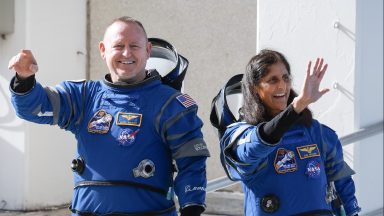
Astronauts Suni Williams and Butch Wilmore have been stranded on the International Space Station (ISS) since early June due to malfunctions on their spacecraft, Boeing’s Starliner.
With the mission now lasting more than two months—far exceeding the intended eight days—NASA has finally provided a clearer update on when and how Williams, 58, and Wilmore, 60, will return to Earth.
During an Aug. 14 teleconference, NASA confirmed that both astronauts are doing well aboard the ISS. Joe Acaba, the chief of the Astronaut Office at NASA’s Johnson Space Center in Houston, noted that unexpected delays are something astronauts are prepared for.
“It’s part of our job,” he explained. “We realize that launch dates may slip, mission durations may change in real-time, so as professionals, they’re doing great.”
Previously, on Wednesday, NASA stated they were still deciding whether to keep the two astronauts—both retired Navy captains with experience on long space missions—at the ISS until early next year and send their troubled Starliner spacecraft back empty.
Ken Bowersox, the associate administrator for NASA’s Space Operations Mission Directorate, shared that his team will likely complete their analysis on the best way to bring the astronauts home within a week, after which a formal review will be conducted in the last two weeks of August.
“We’ve got time available before we bring Starliner home, and we want to use that time wisely,” said Bowersox.
With this update, Williams and Wilmore will have to wait up to two more weeks to learn whether they will board the Starliner to return to Earth or if they’ll use one of SpaceX’s Dragon capsules.
Switching to SpaceX would require bumping two of the four astronauts assigned to the next ferry flight, currently targeted for late September. Wilmore and Williams would take the empty seats in SpaceX’s Dragon capsule once that half-year mission ends—requiring the two astronauts to stay on the ISS for an additional six months until February 2025.
While Boeing was not present at the Aug. 14 press conference, the company previously affirmed their confidence in Starliner’s capability to successfully repair the malfunctions—which include leaks in its propulsion-related plumbing and five failed thrusters—to bring the astronauts back.
“We still believe in Starliner’s capability and its flight rationale,” the company said in a statement on Aug. 9. “If NASA decides to change the mission, we will take the necessary actions to configure Starliner for an uncrewed return.”